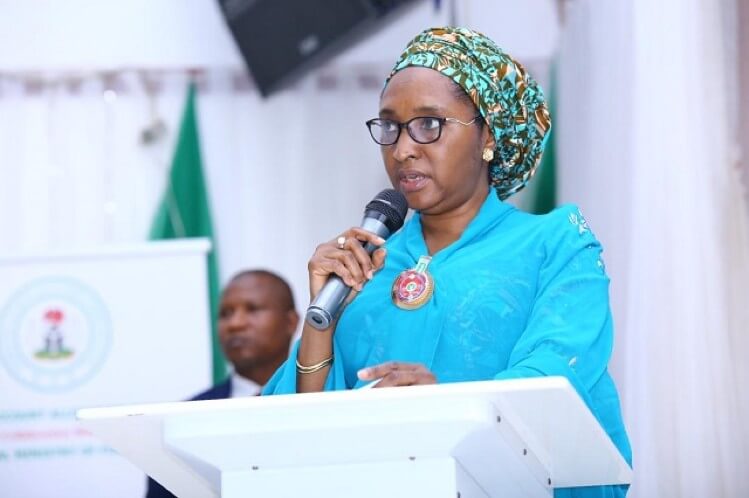FG May Reduce Import Duties On Mass Transit Buses To Check Inflation
There are indications that Federal Government in a bid to reduce the high cost of transportation may reduce the import duties on mass transit buses.
The Minister of Finance, Budget and National Planning, Mrs Zainab Ahmed gave the indication on Friday at a virtual consultation and stakeholder engagement to discuss the economic and fiscal policy drivers underpinning the Finance Bill 2020.
Advertisement
The Minister who said the inflation rate in Nigeria is largely driven by the cost of transport noted that the draft bill sought to reduce transportation cost in the country.
The country has seen an increase in transport costs in recent months largely on the back of the hikes in the pump price of petrol, used by many commercial transporters to power their vehicles.
In what is the latest in a series of petrol price hikes since July, fuel marketers have raised the pump price of the product on Friday following the increase in the ex-depot price.
The average transport fare paid by commuters for bus journeys within a city increased by 12.70 per cent month-on-month and 48.02 per cent year-on-year to N278.88 in August, the latest data from the National Bureau of Statistics showed.
Advertisement
Ahmed said, “The bill contain some interesting new proposals,fiscal relief for mass transit which is designed to provide support to mass transit by reviewing the duties regime.
“The essence why this is being done is we recognise transportation as one of the major cost drivers in the economy. If you look at the rate at which our inflation is going, and you disaggregate the components, you will find that inflation is largely driven by transport cost.
“So, the essence here is to reduce transportation cost so that businesses will have ease and pass benefits to eventual consumers.”
The nation’s inflation rate rose to 13.71 per cent in September from 13.22 percent a month earlier, according to the NBS.
The Nigeria Customs Service had last year sought a reduction in the tariff for imported vehicles from the current rate of 70 per cent of the cost of such vehicles to 45 per cent.
Advertisement
The Comptroller-General of Customs, Col Hameed Ali (retd.) had said that with the high rate of smuggling of vehicles into the country which was caused by the high tariff on imported vehicles, it had become imperative to reduce the tariff to stem the tide.
According to him, any new vehicle imported into the country attracts an import duty of 35 per cent and an additional levy of 35 per cent.
This, he noted, brought the total duty payable on such a vehicle to about 70 per cent.
He described the 70 per cent being charged by the government as high, adding that time had come for it to be reduced to 45 per cent.
To achieve this, he said the government could still retain the 35 per cent import duty, while the additional 35 per cent levy could be tinkered with by bringing it down to ten per cent.
This, he explained, would bring the total import duty on new vehicles to 45 per cent.
He had said, “We have 35 per cent duty and 35 per cent levy and so if you import a brand new vehicle into Nigeria, you pay 70 per cent duty.
Advertisement
“From what we have done and based on statistics, we discovered that this duty has now driven most of our importers to our neighbouring ports and also it has increased the rate of smuggling into this country of new vehicles.
Having interacted with our stakeholders, we discovered from what they said that the sudden increase in duty is what is driving them.
“And since 35 per cent duty cannot be tinkered with, the one that can be tinkered with (is the 35 per cent levy) which is a policy by the Nigerian government. The 35 per cent was put in order to encourage our automotive industry to ensure that it is developed.
He added, “If we reduce the levy, the volume of cars that would be imported into Nigeria will increase and the revenue from the Nigeria Customs Service will increase.
“So we are advising that the government should review the levy and we are asking that it should be reduced to about 10 per cent.
“If you do that, then it will mean that the collective duty on a new vehicle will be about 45 per cent. That is 35 per cent duty and ten per cent levy.
“With that, we will eventually get an increase in the volume of vehicles that are imported, smuggling will be reduced and, therefore, we will realise more revenue and the lives of our people will be saved.”



